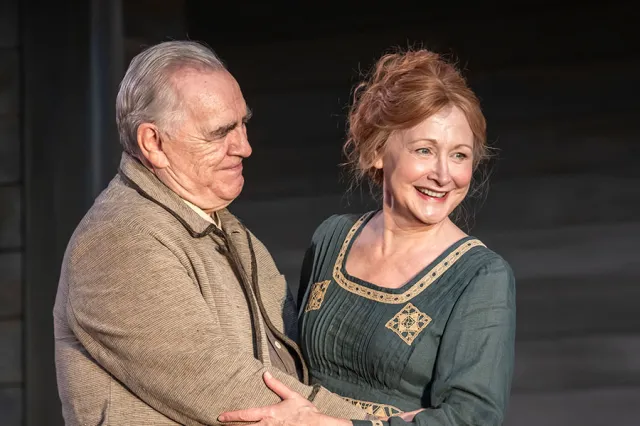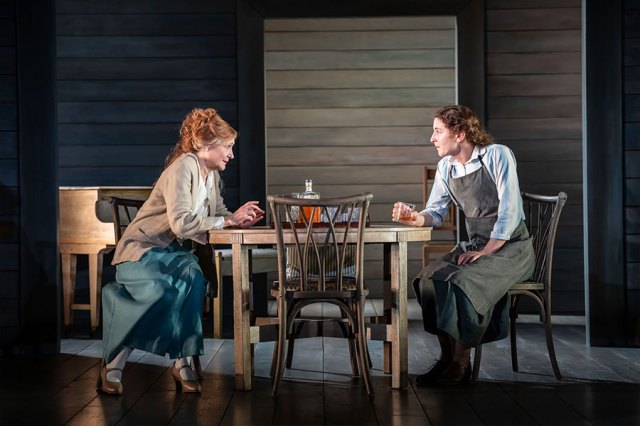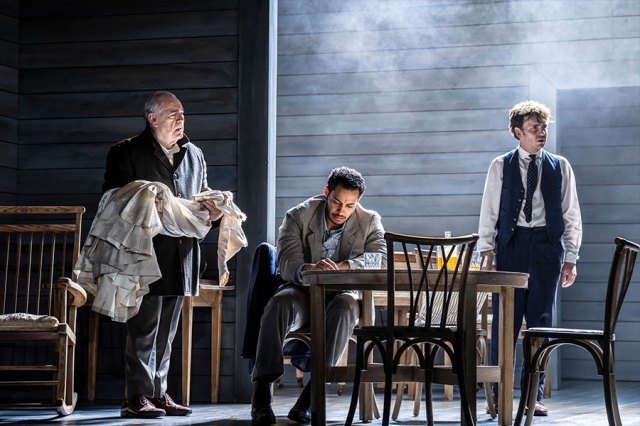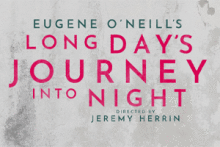Long Day’s Journey Into Night review – Brian Cox and Patricia Clarkson lead West End revival
Eugene O’Neill’s classic returns

Eugene O’Neill’s epic play is a quartet for four voices, with occasional notes from foghorn and Irish maid. It’s a great chorale of loss, loneliness and waste, sung in the passage from early morning to dark in one rundown summer home in Connecticut. It’s closely based on the playwright’s own family sorrows, yet in its brutal honesty and its elegiac understanding it has a remarkable capacity to speak to all times, all places and all families.
Because this latest revival stars Brian Cox, returning to the West End stage after ten years, basking in his late period Succession fame, you imagine that the focus will be – as it often is – on the paterfamilias James Tyrone, a roistering actor who has sold his talent for fortune, sacrificing his love of Shakespeare to make money in an inferior barnstormer.
Yet the fascinating quality of Jeremy Herrin’s sensitive and finely-tuned production is that it turns attention elsewhere. It clearly makes you understand how this whole unhappy family’s life has been distorted by the illness at its heart, by the way that James and his two sons, drunken James Jr and sensitive Edmund, have all been forced to shape their lives around the morphine-addicted Mary, a wife and mother who spends her days as a ghost, rowing back ceaselessly into their past, making them subscribe to her fantasies.

In Patricia Clarkson’s eagle-sharp interpretation, Mary isn’t some poetic wispy figure floating through the house, but a dominant force, whose evasions, untruths and occasional moments of absolute knowledge prevent her family from confronting their own demons. She shapes her dialogue as sharp remonstrances that fill her family with guilt. James Jr (a wonderfully sad and sullen Daryl McCormack) gives voice to their despair; he had hoped that if his mother could escape being a “dope fiend”, he could beat the alcohol that is destroying his own life.
Cox too beautifully conveys his own longing for normality, when in the hopeful opening scenes he talks about Mary being back to her “good old self”; this is a marriage based in love, however horribly it has floundered. Other moments take on new meanings. Mary’s long conversation with the maid Cathleen (the excellent Louisa Harland) where she reminisces about how beautiful she once was and how lonely she now is, becomes revelatory as Cathleen suddenly sees Mary’s delusion and manipulativeness.
All of this is placed within the truth of her observation that James Tyrone’s meanness, both literally and emotionally, has undermined their hopes of a proper home, and a meaningful family life. Lizzie Clachlan’s bare, wooden-boarded set plays up his parsimoniousness. There’s barely a cushion for comfort, and as day turns to night, Jack Knowles’ lighting design shows a man prepared to wear out his own eyes rather than give money to the electricity company.

Cox, all bark and ferocity, plays up the character’s fury, his sense of betrayal, his anger at the world and himself. In short, punchy outbursts of speech, he is cruelly dismissive of James, and you almost feel McCormack flinch beneath his verbal blows. Even more shockingly, he is prepared to skimp on the care of the delicate Edmund, whose diagnosis with consumption provides the play’s main narrative thread. Yet in the long final conversation between them, Cox also reveals James’s fear of poverty, and Kynaston’s wonderfully intense and frightened Edmund listens as if understanding his father for the first time.
The new lights cast in scenes such as these are part of the play’s underlying strength. Each character is revealed as both monstrous and fallible, aware of their own frailties while simultaneously blaming them on others. Written in 1941, Long Day’s Journey was premiered in 1956, three years after O’Neill’s death, yet it is capable of constant reinvigoration and reinterpretation. The clarity and directness of Herrin’s production and the way that the cast both speak and listen with absolute intent brings it to vivid life once more.

















